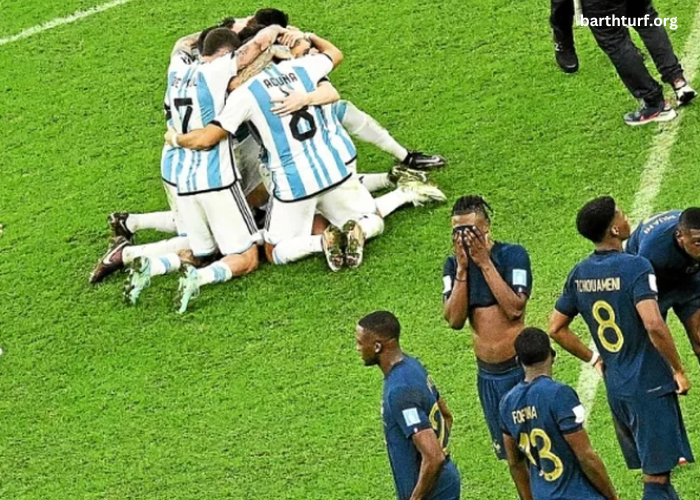The FIFA World Cup is more than just a tournament; it is a global spectacle that brings together nations, cultures, and communities in a shared passion for football. The 2022 edition, held in Qatar, was particularly unique due to its timing and venue. With an innovative approach and a commitment to showcasing the beauty of the game, the tournament left an indelible mark on the world of sports. This article delves into the history, significance, and unforgettable moments of the 2022 FIFA World Cup.
A Brief History of the World Cup
Established in 1930, the FIFA World Cup has evolved into one of the most prestigious sporting events globally. The tournament features national teams from around the world competing for the coveted title, making it a symbol of unity and competition. Over the decades, the World Cup has witnessed numerous iconic moments, legendary players, and dramatic matches that have become part of football folklore.
The decision to host the 2022 World Cup in Qatar marked a significant departure from tradition, as it was the first time the tournament was held in the Middle East and in November and December, rather than the traditional June and July. This change aimed to avoid the extreme heat of the Qatari summer, allowing players and fans to enjoy the matches in more comfortable conditions.
Qatar: A Unique Host Nation
Qatar’s selection as the host nation sparked discussions and debates, particularly regarding its climate, infrastructure, and cultural considerations. The Qatari government invested heavily in state-of-the-art facilities, including stadiums designed to meet the highest international standards. Each venue was equipped with advanced cooling technologies, ensuring a comfortable environment for players and fans alike.
The tournament also highlighted Qatar’s rich cultural heritage. From the stunning architecture of the stadiums to the warm hospitality of the Qatari people, the World Cup provided a unique opportunity for visitors to experience the country’s traditions and innovations. The integration of cultural events and fan zones added to the overall ambiance, making the World Cup a truly immersive experience.
The Tournament Format and Structure
The 2022 FIFA World Cup featured 32 teams competing in a month-long tournament. The teams were divided into eight groups, with the top two from each group advancing to the knockout stage. This format ensured that fans enjoyed a variety of matchups and rivalries, culminating in the highly anticipated final.
The knockout stage, characterized by sudden-death matches, intensified the competition. Teams that advanced were not only competing for glory but also for the chance to etch their names in football history. The pressure mounted as teams faced elimination, leading to thrilling and dramatic encounters.
Memorable Matches and Highlights
The 2022 World Cup was replete with unforgettable moments that captivated audiences worldwide. From stunning goals to heart-stopping comebacks, the tournament showcased the very best of football.
One of the standout matches was the clash between Argentina and France in the final. This encounter was a fitting conclusion to the tournament, pitting two footballing powerhouses against each other. The match was a rollercoaster of emotions, with both teams showcasing skill, determination, and resilience. Argentina took an early lead, but France responded with an electrifying performance that kept fans on the edge of their seats. The match ultimately ended in a dramatic penalty shootout, further solidifying its place in World Cup history.
Throughout the tournament, individual players emerged as heroes. Lionel Messi’s dazzling performances earned him the tournament’s Golden Ball, while Kylian Mbappé’s remarkable skill and speed made him one of the most exciting young talents in the game. Their contributions, along with those of other players, elevated the level of competition and captured the imagination of football fans around the globe.
Cultural Impact and Global Reach
The 2022 FIFA World Cup had a profound impact beyond the football field. It served as a platform for cultural exchange, fostering connections among people from diverse backgrounds. Fans traveled from all corners of the world, united by their love for the game and their desire to witness history in the making.
The tournament also highlighted important social issues, including discussions around inclusivity, diversity, and sustainability. Qatar’s commitment to hosting a responsible World Cup, including initiatives aimed at reducing environmental impact and promoting social welfare, showcased the potential of sport to drive positive change.
The Legacy of the 2022 World Cup
As the dust settled on the 2022 FIFA World Cup, the tournament left behind a lasting legacy. The state-of-the-art stadiums, developed infrastructure, and increased global interest in football in the Middle East will have lasting benefits for the region. Moreover, the success of the tournament demonstrated the power of football to unite people and inspire future generations.
Qatar’s experience in hosting the World Cup may pave the way for other nations in the region to explore similar opportunities in the world of sports. The investment in sports facilities and the infrastructure necessary to support such grand events could lead to a new era of sporting excellence in the Middle East.
Looking Ahead: The Future of the World Cup
With the conclusion of the 2022 World Cup, attention now shifts to future tournaments. The excitement for the next editions is already palpable, particularly with the upcoming 2026 World Cup set to take place in the United States, Canada, and Mexico. This will mark the first time the tournament is hosted by three nations, further expanding the reach and inclusivity of the event.
As football continues to grow globally, the lessons learned from the 2022 World Cup will undoubtedly influence how future tournaments are organized and executed. From innovative technologies to fan engagement strategies, the evolution of the World Cup will reflect the changing landscape of the sport.
Conclusion
The 2022 FIFA World Cup in Qatar was a remarkable celebration of football that transcended borders and cultures. From the thrilling matches and legendary performances to the rich cultural experiences, the tournament showcased the best of the beautiful game. As fans around the world reflect on the memories created during this unforgettable event, the spirit of the World Cup will continue to inspire future generations of football lovers.
In a world where sport has the power to unite, the FIFA World Cup remains a shining example of how passion, competition, and camaraderie can come together to create moments that resonate for years to come. The legacy of the 2022 World Cup will endure, reminding us all of the magic of football and the joy it brings to millions around the globe.



